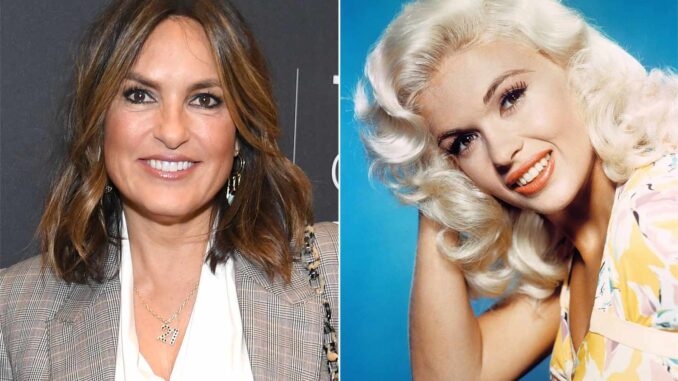
From Bombshell's Shadow to Trailblazing Icon: Mariska Hargitay's Unconscious Rebellion
Mariska Hargitay's career trajectory is a fascinating tapestry woven with threads of resilience, empathy, and a subtle, yet powerful, rebellion. As the daughter of the iconic Jayne Mansfield, a platinum blonde bombshell synonymous with the mid-century ideal of feminine allure, Hargitay faced the daunting task of forging her own identity in the very industry that had both elevated and, arguably, limited her mother. While she may not have consciously set out to dismantle Mansfield's legacy, the very choices that define Hargitay's career – from her role as the fiercely protective Detective Olivia Benson on Law & Order: Special Victims Unit to her outspoken advocacy for survivors of sexual assault – suggest an unconscious rebellion against the typecasting that defined her mother's career and, perhaps, even contributed to her tragic fate.
Mansfield, a dazzling figure in a male-dominated Hollywood, was often reduced to her physical attributes. While she undoubtedly possessed talent, intelligence, and a sharp wit, her persona was carefully curated to fit the mold of the "dumb blonde," a caricature designed to appeal to the male gaze. Her roles were often frivolous, highlighting her curves and comedic timing rather than exploring her dramatic depth. This imposed limitation, this box she was seemingly forced to inhabit, is precisely what Hargitay seems to be fighting against through her work.
The very foundation of Hargitay's success lies in her willingness to embrace roles that challenge conventional notions of femininity. Olivia Benson is not a damsel in distress, waiting to be rescued. She is a powerful, intelligent, and deeply flawed woman who confronts the darkest aspects of human nature with unwavering determination. She is a protector, a champion for the vulnerable, and a beacon of hope for survivors. This portrayal is a far cry from the often passive and objectified roles that defined Mansfield's era.
Furthermore, Hargitay's dedication to SVU and its complex subject matter speaks volumes. While Mansfield often portrayed characters consumed by lighthearted pursuits, Hargitay dedicates her career to exploring the devastating impact of sexual violence. The emotional toll of portraying a detective dealing with such harrowing cases is undeniable, yet she persists, driven by a profound sense of purpose. This commitment is not simply about entertainment; it's about shedding light on uncomfortable truths, fostering empathy, and empowering survivors to speak out. It’s a conscious rejection of the superficiality that often characterized her mother's roles, a deep dive into the complexities of human suffering and resilience.
Beyond the screen, Hargitay's advocacy for survivors through her Joyful Heart Foundation further solidifies her position as a force for positive change. She uses her platform not to promote glamour or superficiality, but to raise awareness, provide resources, and advocate for policy changes that support survivors of sexual assault, domestic violence, and child abuse. This tireless work is a direct antithesis to the objectification and vulnerability that Mansfield often embodied, albeit unwillingly. It's as if Hargitay is actively reclaiming the narrative, turning the spotlight away from superficiality and towards genuine strength and empowerment.
While Hargitay often speaks fondly of her mother and acknowledges the pressures she faced, it's undeniable that her career represents a departure from Mansfield's prescribed path. Perhaps unconsciously, Hargitay is fighting for a world where women are valued for their intellect, their compassion, and their strength, not just their physical appearance. Her choice to embrace roles that are challenging, emotionally demanding, and ultimately empowering, suggests a desire to redefine what it means to be a powerful woman in Hollywood, a woman who is not defined by her beauty but by her character, her resilience, and her unwavering commitment to making a difference.
In conclusion, Mariska Hargitay's journey is a testament to the power of resilience and the subtle, yet profound, influence of legacy. While she may not have consciously set out to rebel against her mother's typecasting, her career choices – from her iconic role as Olivia Benson to her unwavering advocacy for survivors – speak volumes. Through her work, she has not only forged her own identity but has also challenged the very notions of femininity and power that defined her mother's era, creating a legacy built on strength, empathy, and a profound desire to heal the world, one story at a time. Her unconscious rebellion, born from a deep understanding of the limitations placed upon women, has transformed her into a trailblazing icon, proving that true power lies not in superficial allure but in the unwavering pursuit of justice and compassion.
